1925
subway headhouse
The Cambridge Kiosk, often referred to as the Out of Town Newsstand or Harvard Square Kiosk, stands at the heart of Harvard Square. Built in 1925 by the Boston Elevated Railway Company , the structure originally served as a headhouse for the Harvard subway station and quickly became a central landmark in the area. Adjacent to the headhouse, Sheldon Cohen began selling newspapers and, in 1954, opened the now-famous Out of Town News. The newsstand moved into the old subway headhouse in 1983, following the opening of the new Harvard Square MBTA station as part of the Red Line extension to Alewife.
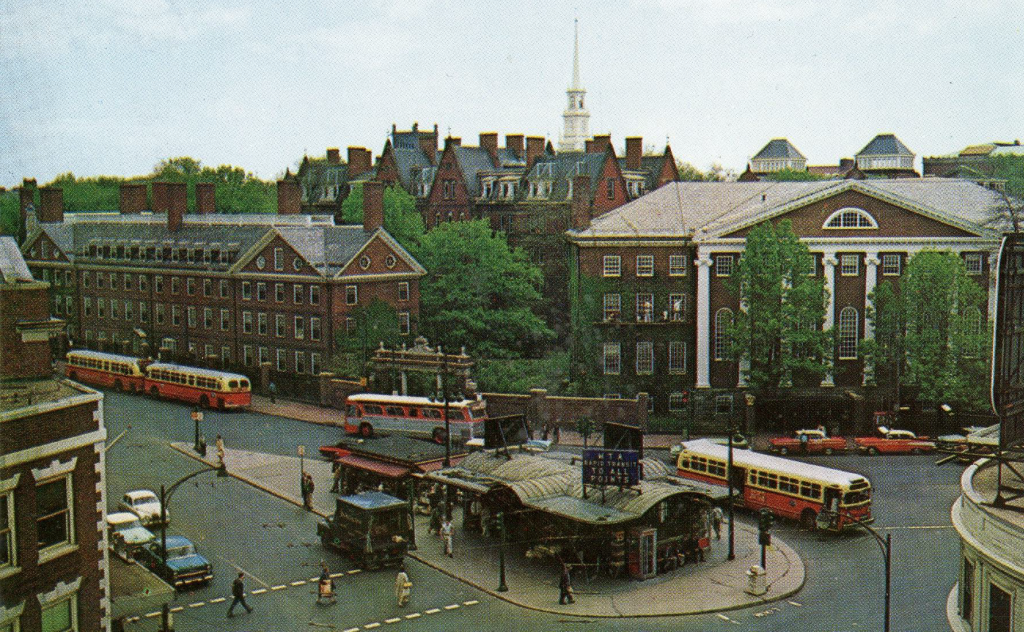
1954
Out of Town newsstand
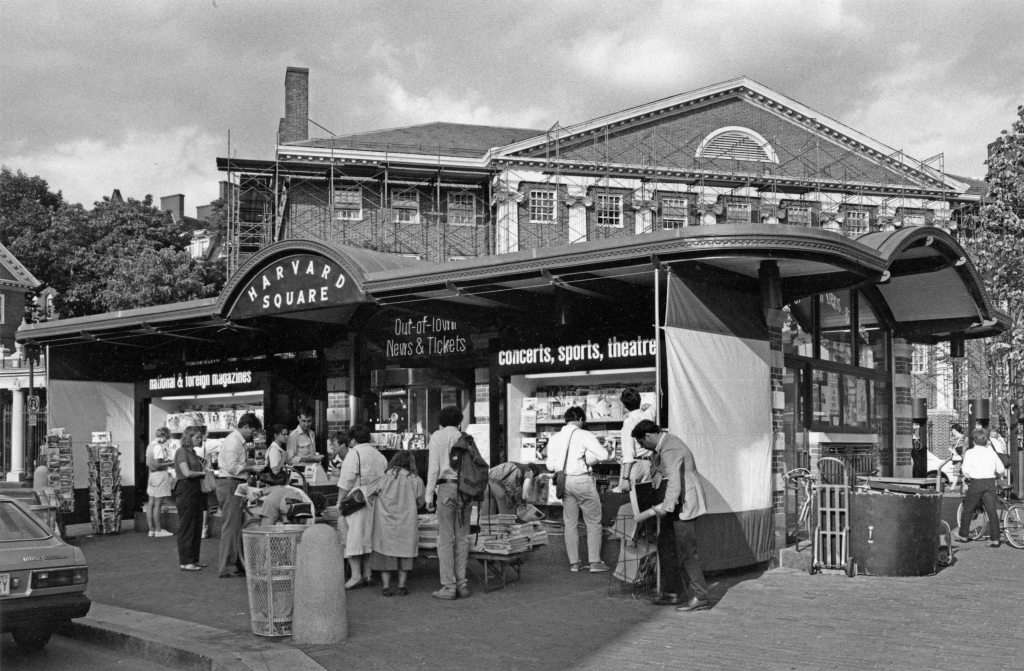
Plans to demolish the structure during the station’s construction were halted when the Cambridge Historical Commission successfully nominated it for the National Register of Historic Places. The City of Cambridge, which owns the building, renovated the headhouse into a newsstand and granted Out of Town News a twenty-year lease. A decade later, Cohen sold the business to Hudson County News, which operated it until transferring ownership to Muckey’s Corporation. The newsstand remained a fixture in the square until it closed on October 31, 2019.
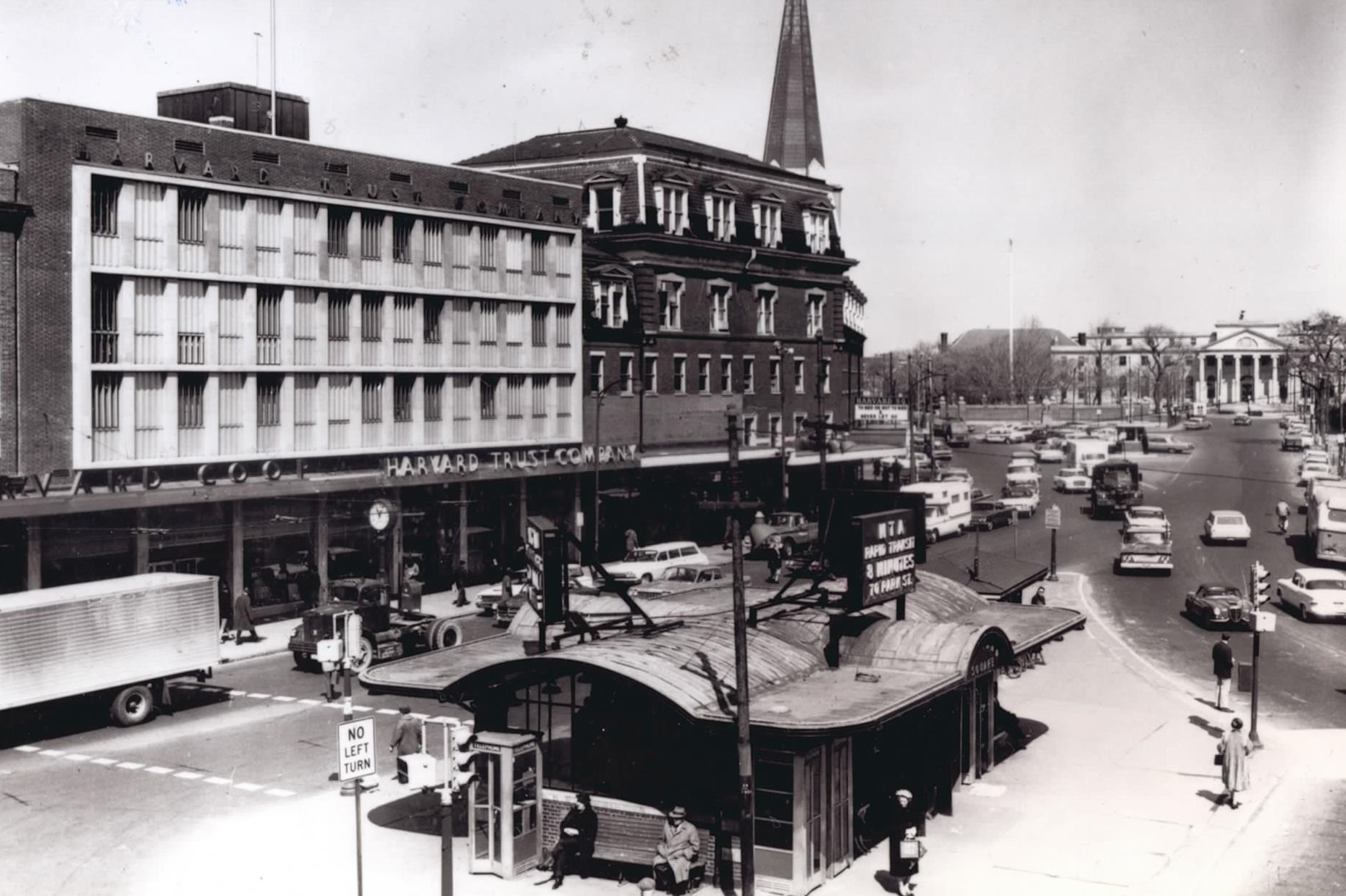
The prime location of Out of Town News, combined with its extensive selection of printed materials, made it a popular destination for many. Julia Child frequently browsed the stand for German and Italian cooking magazines, while economist John Kenneth Galbraith stopped by daily to purchase Le Monde. In January 1975, a 21-year-old Paul Allen picked up a copy of Popular Electronics for his friend Bill Gates—the issue that featured the “World’s First Minicomputer Kit” on its cover and is often credited with inspiring the creation of Microsoft. Beyond its famous patrons, Out of Town News served as a vital connection to home for many Cantabrigians, at one point selling 1,500 Irish newspapers each week.
1959
cultural epicenter
In addition to functioning as a headhouse and newsstand, the Kiosk long served as a gateway to Harvard Square, greeting people as they emerged from the subway and stepped onto bustling streets. Its vibrant atmosphere appealed to artists, particularly during the Square’s heyday as a hub for up-and-coming folk musicians in the 60’s and 70s. In this 1959 photo below, Joan Baez, Ted Alevisos, and Bill Wood play guitar in front of the subway entrance—the same year they recorded Folksingers ‘Round Harvard Square, Baez’s debut album before she achieved international acclaim and was eventually inducted into the Rock and Roll Hall of Fame.
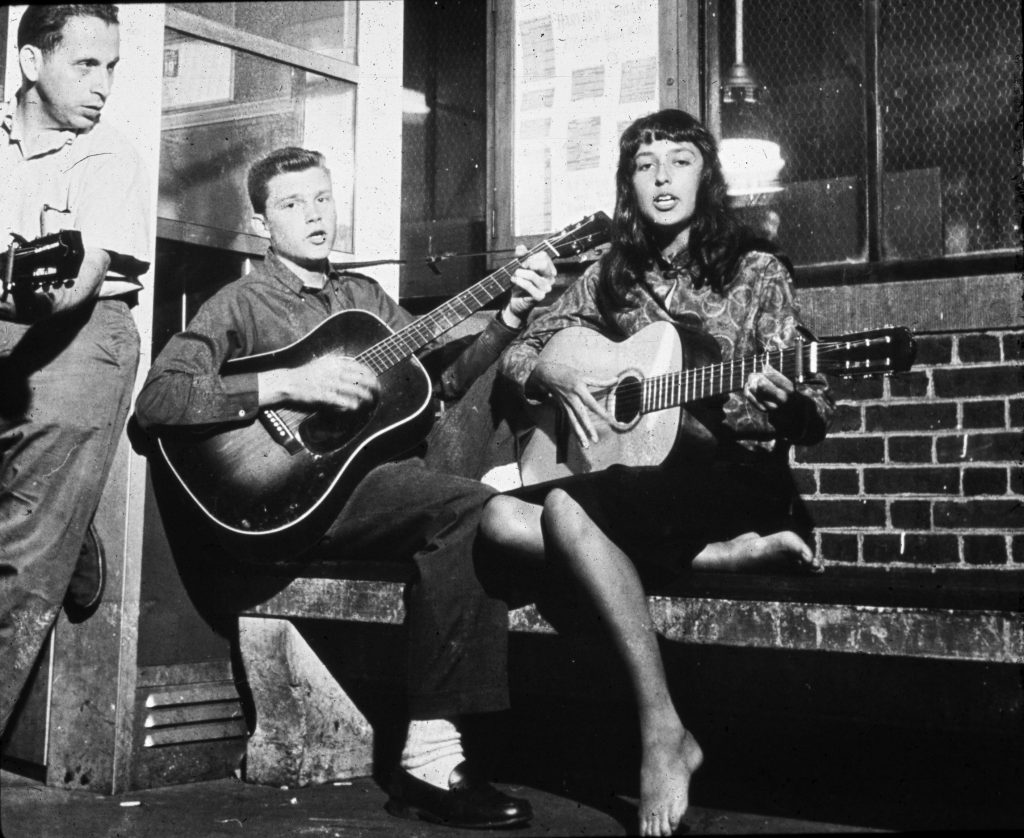
Beyond music, the Kiosk stood witness to countless protests which shaped Harvard Square’s history. On the evening of April 15, 1970, around 1,500 antiwar demonstrators marched from Boston Common to Harvard Square as part of a nationwide Tax Day protest against military spending. Tensions escalated as protesters clashed with police, culminating in what became known as “the Harvard Square riots.” Storefronts were vandalized and looted, causing an estimated $100,000 in damages, while 35 people were arrested and 214 treated for injuries.
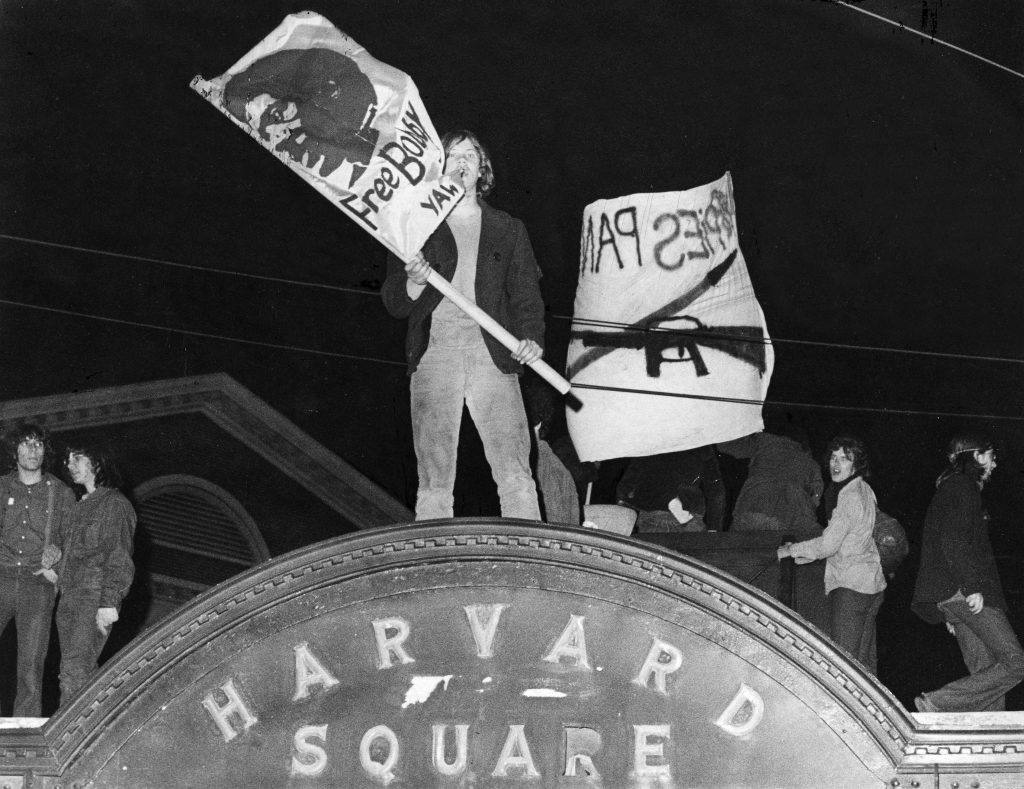
2017
renovations for the future
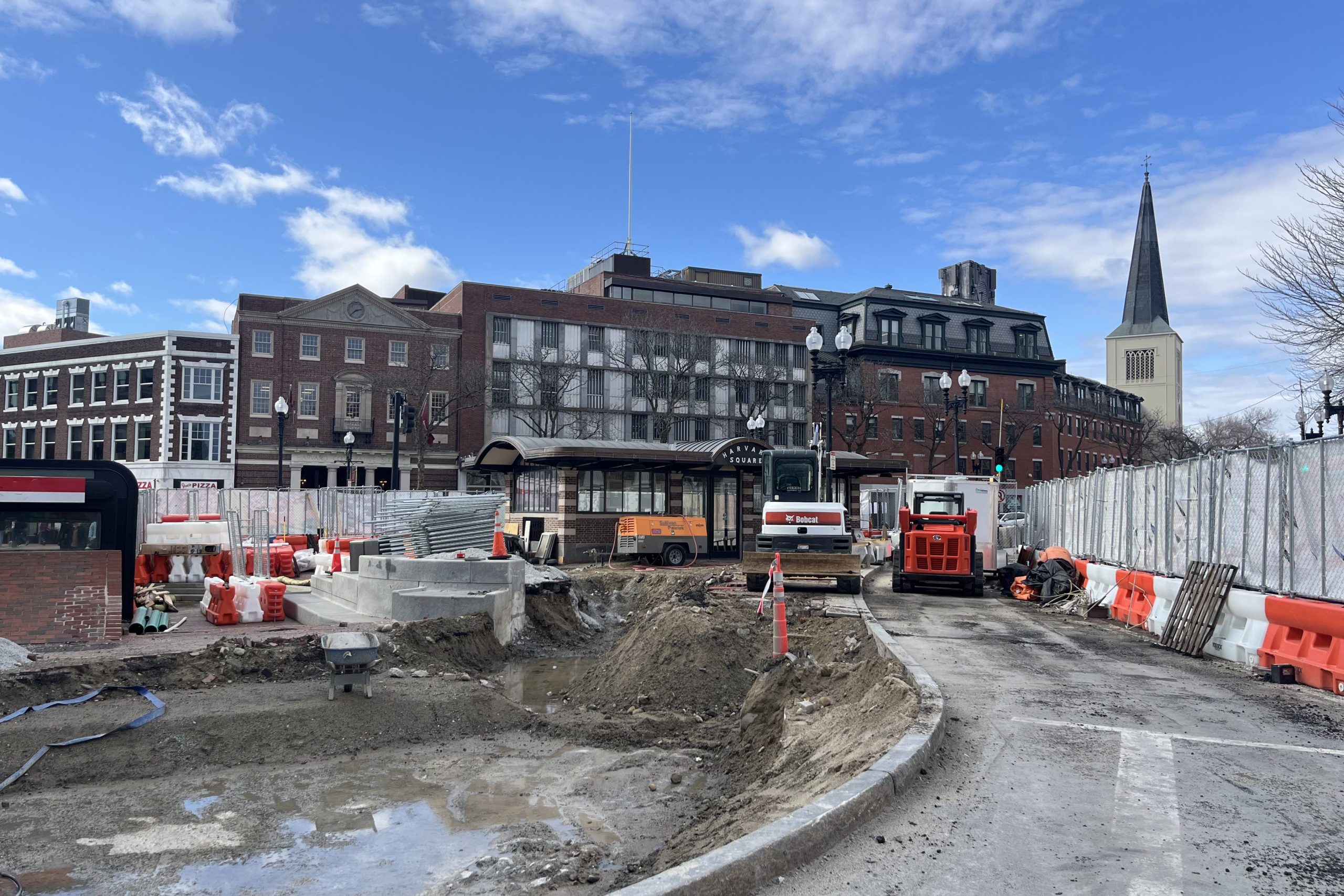
Over the years, both the Harvard Square Plaza and the Kiosk began to show signs of wear, prompting a need for extensive renovation. In 2017, the City of Cambridge convened a Working Group to develop a vision for the Plaza and the Kiosk’s future. Incorporating community feedback, the group proposed a plan to make the Plaza more accessible and restore the Kiosk to meet modern safety standards. Although construction was initially scheduled to begin in summer 2020, it faced delays.
2019
CultureHouse Harvard pop-up
While the City had anticipated that Out of Town News would stay open at least until the renovation work began on the Kiosk, the closure of the business in 2019 left an empty building at the heart of Harvard Square. To fill this gap, CultureHouse opened an 8-month pop-up space in the Kiosk in December 2019, bringing temporary vitality to this historic site.
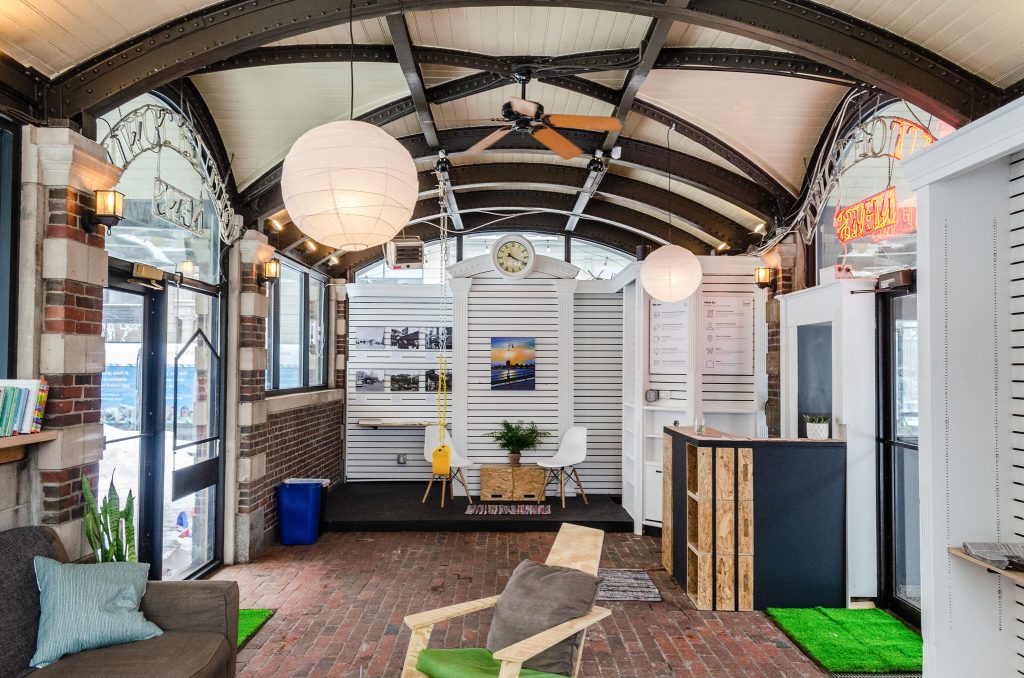
The CultureHouse Harvard pop-up invited the public to engage in an innovative use of the space, exploring potential long-term uses. Over the course of eight months, CultureHouse collaborated with community partners to design programs that addressed key issues central to the greater Harvard Square community, including housing, arts, and education. Due to the COVID-19 pandemic, the pop-up closed temporarily in compliance with local guidelines and later reopened with a more limited capacity for the remainder of its operation. The learnings of this pop-up helped inform the most recent activation of the Kiosk by providing insights into how the space is best used.
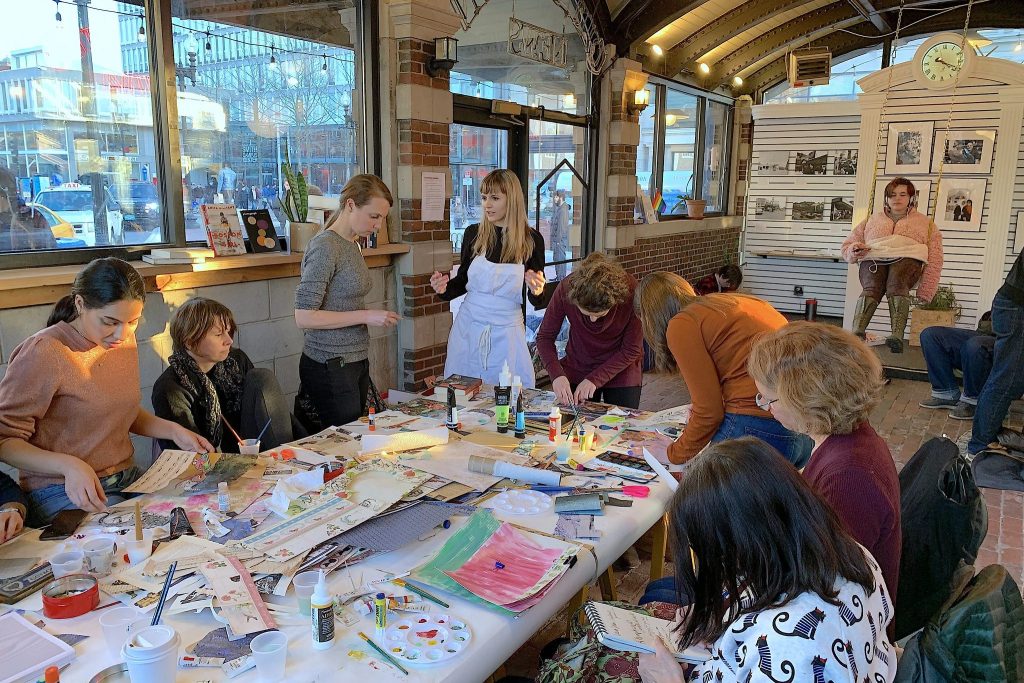
2025
Cambridge KiOSK
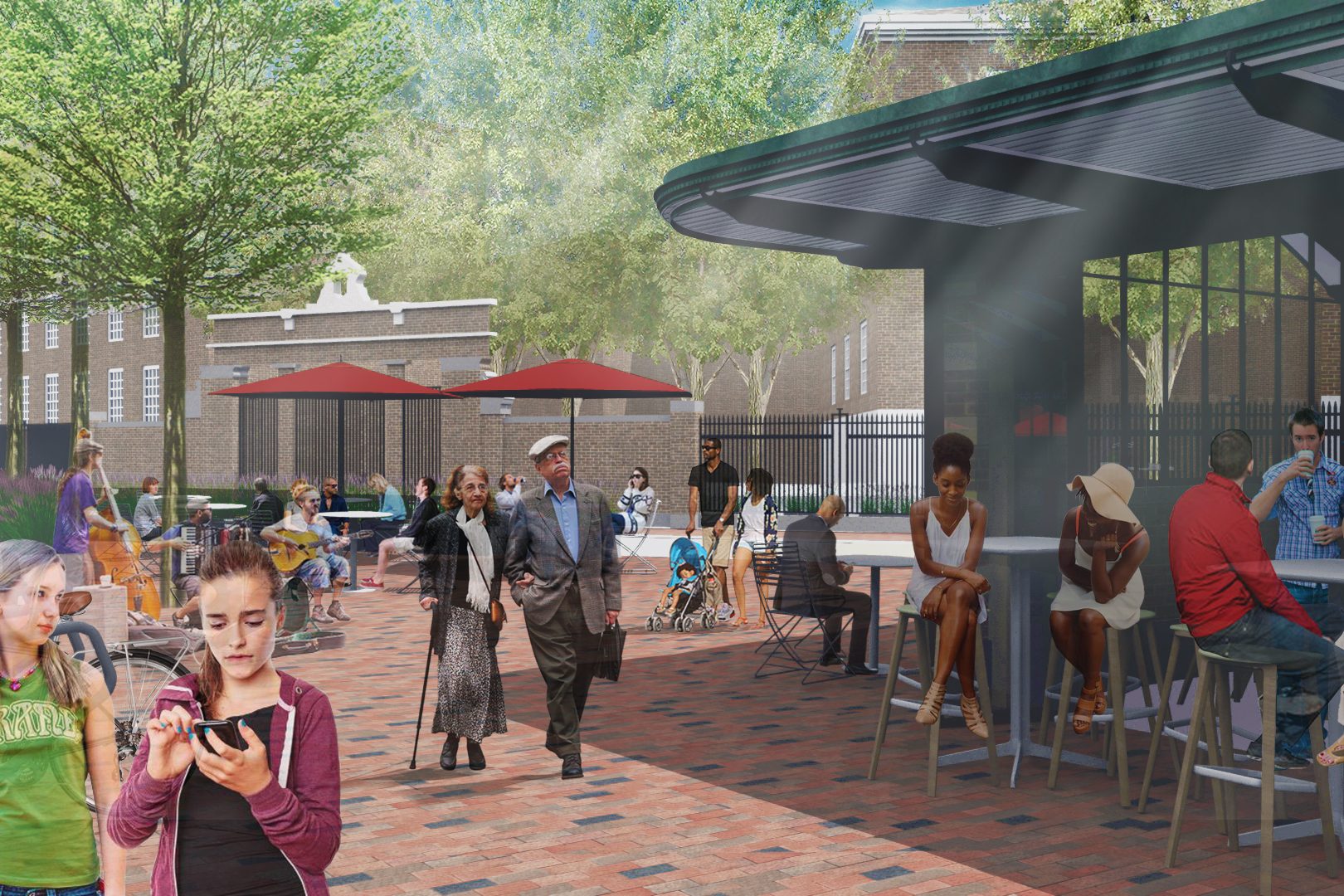
Following the completion of renovations, CultureHouse was selected to operate the space in partnership with the Cambridge Office for Tourism. The newly restored landmark, now known as the Cambridge KiOSK, lives on in its newest iteration as a dynamic cultural incubator, community gathering hub, and information center.
